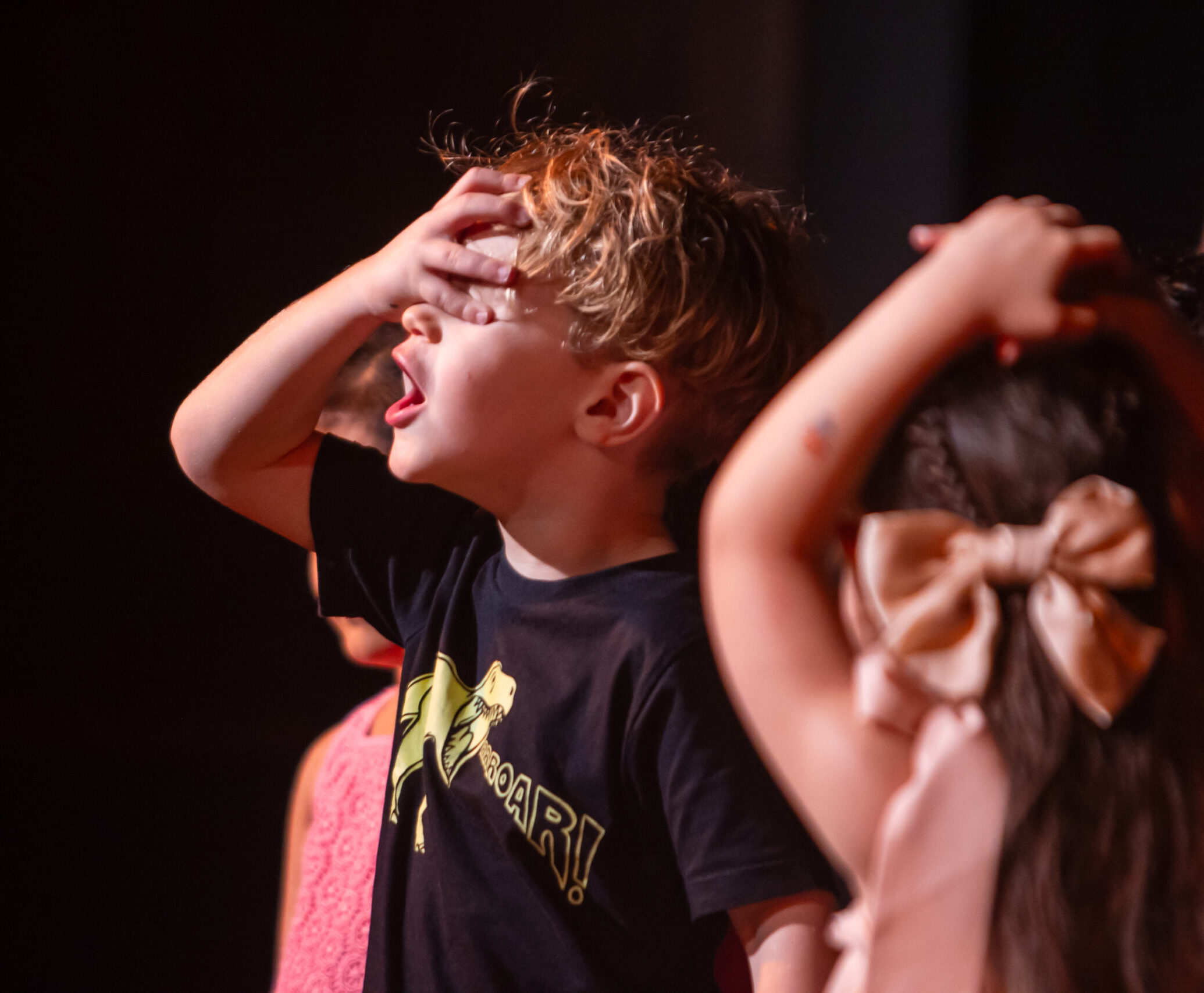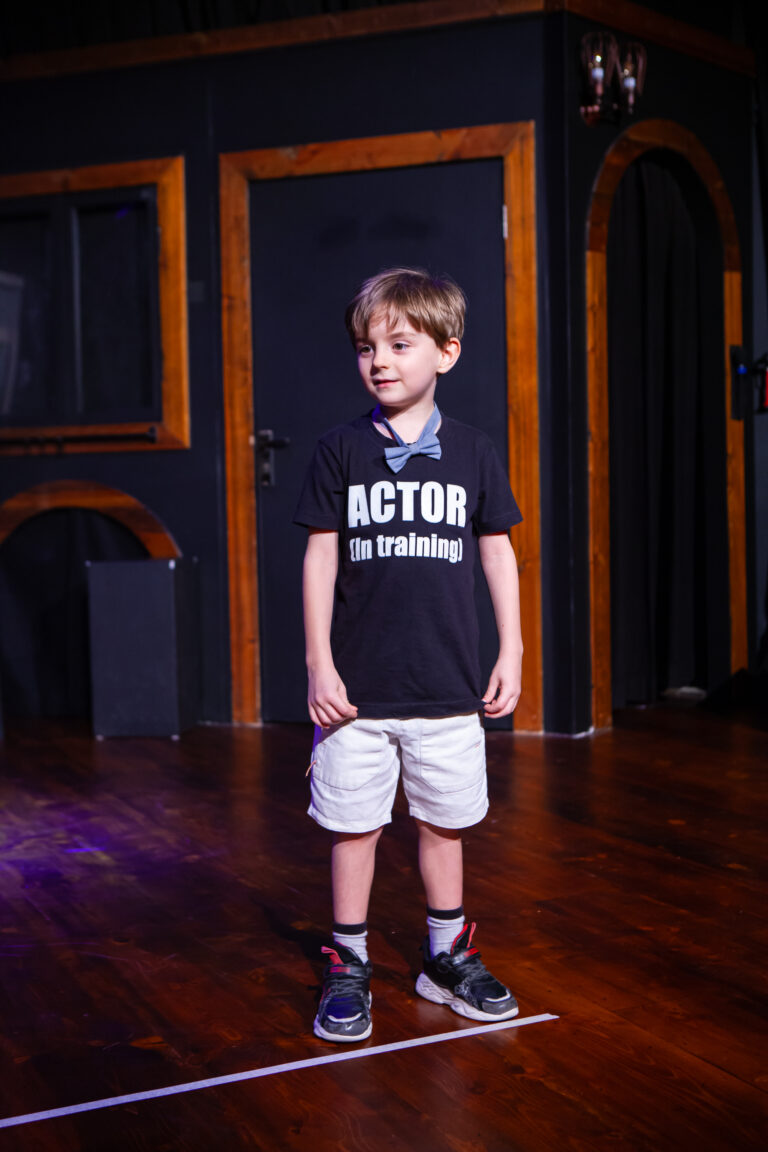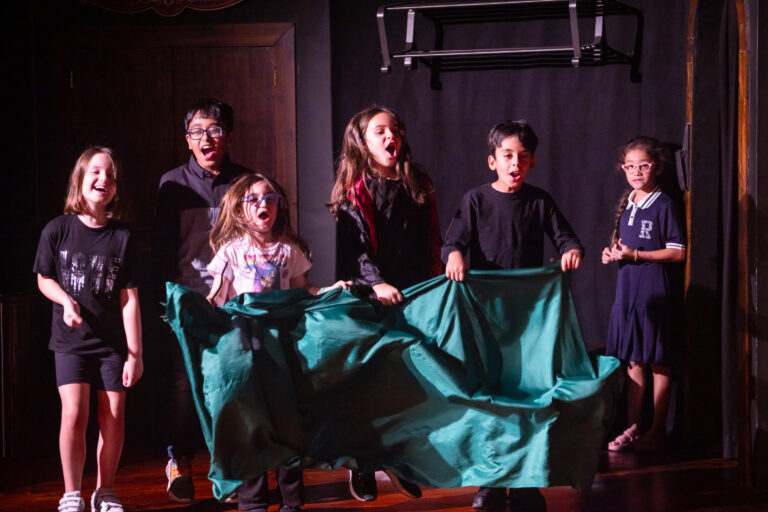Why Theatre Gives Children the Breathing Room They’re Missing
Children today are growing up in an environment that asks a lot of them, often before they’re developmentally ready. School moves fast. Homework piles up. Assessment starts early. Even playground games seem more competitive than they used to be. Somewhere between academics, sport, clubs and social expectations, childhood has become a place where “getting it right” matters more than trying.
For many children, this pressure quietly builds. They worry about saying the wrong thing. They hold back in class. They compare themselves to others. They second-guess their ideas. They become cautious at an age when they should be boldly experimenting with who they are and what they can do.
Drama, when taught in a particular way, becomes a powerful antidote.

The quiet crisis: kids are terrified of getting things wrong
Parents see it at home long before teachers see it in the classroom. A child avoiding reading aloud because they might stumble. A child refusing to draw because “it won’t look nice”. A child melting down over homework because one mistake feels like failure rather than just part of learning.
Psychologists call this performance anxiety. It’s growing among children, and it’s often fuelled by environments where success is measured, compared, ranked and rewarded. Mistakes become evidence of “not being good enough”, rather than moments of learning.
Theatre classes for kids, done well, disrupts this mindset completely.

Why theatre is different from school
Improvisation pioneer Keith Johnstone frequently argued that children aren’t born afraid of mistakes — they learn that fear. School teaches them that the safest child is the one who avoids being wrong. Theatre, by contrast, teaches them that an unexpected turn, a strange idea, or a misstep can be the most interesting part of the story. When you look at it that way, learning to fail isn’t just useful — it’s liberating.
In improvisation — the backbone of our approach — scenes fall apart all the time. Lines get forgotten. Ideas take wrong turns. Someone makes a bold choice that doesn’t land. Yet nothing stops. The moment isn’t punished; it becomes the birthplace of the next idea.
Children learn that when something “goes wrong”, a new opportunity appears. They discover that the moment after the mistake is often the funniest, the smartest, or the most imaginative place in the whole story.
That simple lesson can shift an entire emotional landscape.
A classroom where contribution matters more than perfection
Most parents assume drama is about performing, but at its heart, it’s about connecting.
When children walk into a rehearsal room or improv class that values presence, teamwork and listening, something changes. The goal stops being “stand out” and becomes “work together”. Being loud doesn’t matter; being aware does. Being perfect doesn’t matter; being present does.
One of the biggest misconceptions about drama is that it automatically favours the confident, charismatic or outgoing child. That’s not the case in an environment like the Courtyard Playhouse. Some children shine by being imaginative listeners. Others by being responsive teammates. Others by taking one small brave step each week and discovering their voice slowly, quietly and authentically.
Every role matters — not just the child who plays the hero.
That’s why you’ll never see a handful of children hogging the spotlight while others stand at the back dressed as “Tree Number 4”. When drama is used as a tool for growth rather than spectacle, each child is given material that suits their personality and pushes them gently, not forcefully.
The unexpected skill: resilience
When children learn that failure isn’t dangerous, they become braver everywhere else.
A child who has spent a year improvising a story that collapses and then rebuilding it laughs when they make a mistake in school instead of panicking. A child who has practised saying “yes” to unexpected ideas becomes more adaptable during group work. A child who has messed up in front of their peers and been supported, not shamed, is less afraid of raising their hand in class.
Resilience isn’t built by success — it’s built by recovery. Drama gives children countless micro-moments of recovery in every session.

Being valued for who they are
Theatre doesn’t ask children to become someone else. It invites them to explore who they already are — with curiosity rather than judgement.
The quiet child isn’t pushed to be loud. The loud child isn’t told to tone it down. The anxious child isn’t left behind. The imaginative child isn’t told they’re “too much”.
Instead, they are all given space to contribute in ways that feel manageable, meaningful and real. That is the kind of psychological safety most children rarely experience in achievement-driven environments.
And that is why drama can feel like a relief — a place where they can breathe, make mistakes, have fun, and be seen without being scored.

Why learning through failure prepares them for the real world
Children who only ever experience success struggle later when they inevitably hit challenges. Children who experience safe, supported failure learn how to adapt, problem-solve, collaborate, communicate and try again. They grow up able to take risks because mistakes don’t feel catastrophic; they feel normal.
This is the foundation of confidence — not the surface-level kind, but the deep, internal kind that carries children into adolescence and beyond.
Drama is not a magic cure for pressure, but it is one of the few remaining places where children can practise courage without fear.
They experiment, they wobble, they recover, and each time they do, something shifts. They become a little braver, a little more comfortable in their own skin, and a lot more capable of handling a world that demands resilience.

